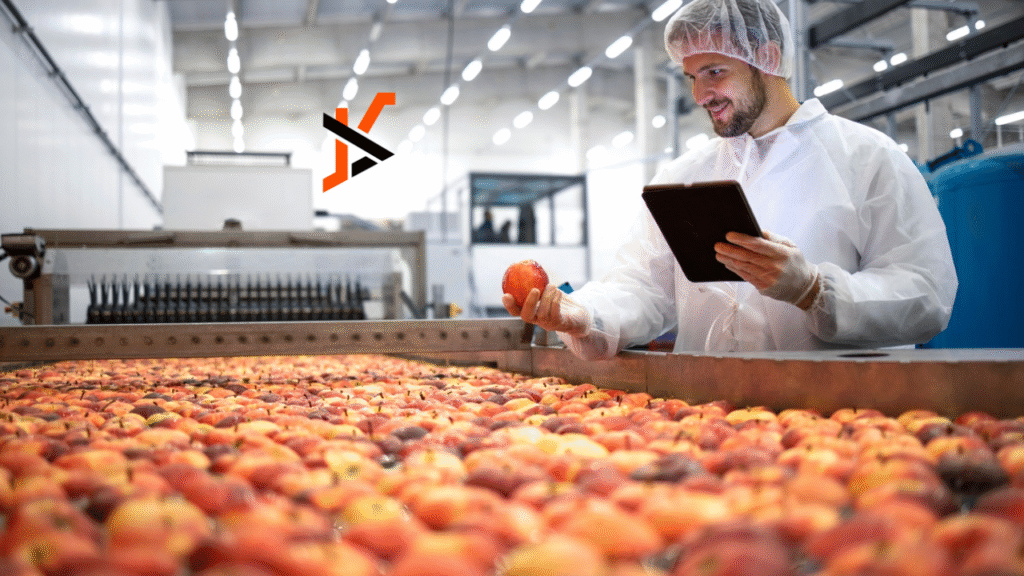The food and drink industry depends heavily on timing and consistency. Every stage, from sourcing ingredients to delivering finished goods, needs systems that can handle pressure and adapt when conditions change. Many companies are realising that modern IT support now plays a direct role in production and the way supply chains run.
1. Keeping Operations Steady With Strong Systems
Factories and production facilities rely on machines and software that rarely get a break. A short system outage can bring an entire line to a standstill. IT support reduces this risk through early detection of faults and rapid response when problems occur.
Companies such as timewade.com and other IT support providers show how a practical approach to technology can separate smooth operations from recurring bottlenecks. For managers, that means having clear information about what failed and how quickly it can be brought back online.
2. Protecting Against Digital Threats
As food technology becomes more connected, exposure to cyber threats increases. Many manufacturers hold sensitive customer data and trade recipes that require strong protection. IT support brings in practices like cyber essentials and regular security audits to block potential breaches. The presence of these safeguards is what keeps businesses ahead of risks that could otherwise damage their reputation and finances.
3. Meeting Regulatory Expectations
Regulatory compliance is non-negotiable in food manufacturing. Standards cover hygiene, food safety and traceability, which means accurate records must be accessible at all times. IT teams configure systems that handle documentation automatically and provide reliable support during audits. Clear records make inspections smoother and reduce the time managers spend gathering documents.
4. Improving Traceability Across Supply Chains
Supply chain businesses in the food sector have to deal with many moving parts. Ingredients often travel long distances before reaching production. IT support enables food traceability solutions that track every stage, from farming to processing.
When a recall is necessary, for example, accurate digital records allow companies to react quickly and limit disruption. Transparent systems also reassure buyers who want to know where their food has come from.
5. Supporting Product Development With Better Data
Innovation in food production requires detailed nutritional analysis and testing. IT support helps store and process these datasets securely. When development teams run trials or adjust recipes, they can rely on accurate information. Strong datasets cut review cycles and help new products move into production faster.
6. Adapting Facilities for Smarter Output
Production facilities often need changes in their factory layout to match new demand or product lines. IT support can guide how technology fits into the design and help staff manage different stages of food processing more effectively.
For instance, a plant might install sensors to monitor temperature or automate packaging lines. IT staff then integrate those systems into central dashboards so managers can monitor progress without walking the floor constantly.
7. Flexible Technology for Growth
Many food businesses are moving to cloud solutions to give them flexibility. Storing data and running applications online makes it easier to scale up during busy seasons. Remote access also means engineers and managers can check systems without being on site. Reliable IT support ensures the migration to cloud systems runs smoothly and that the setup continues to perform as expected.
8. Supporting the Workforce With Training and Guidance
New technology in food processing can only deliver results when staff know how to use it properly. IT support often includes digital manuals and on-call advice for employees on the factory floor. Workers who understand the tools in front of them are quicker to adapt, which reduces downtime and helps production targets stay on track. Over time, these small gains in knowledge build a stronger and more capable workforce.

9. Streamlining Logistics With Better Data
Moving goods efficiently is as important as producing them. Food production depends on ingredients arriving on time and finished items leaving warehouses without delay. IT support plays a role here too, through systems that track deliveries and flag potential delays. When managers can see data from transport and storage in one place, decisions become more accurate. This level of oversight cuts waste and keeps supply routes stable between suppliers and the distribution teams.
Wrapping p
Food companies face daily pressures that range from regulation to supply chain disruptions. Strong technical support helps them stay organised and work more efficiently. The technology is most effective when it supports people on the ground, whether they are managing production lines or preparing reports for inspectors. As the sector continues to adapt, strong IT support will remain part of the foundation that keeps operations steady.

